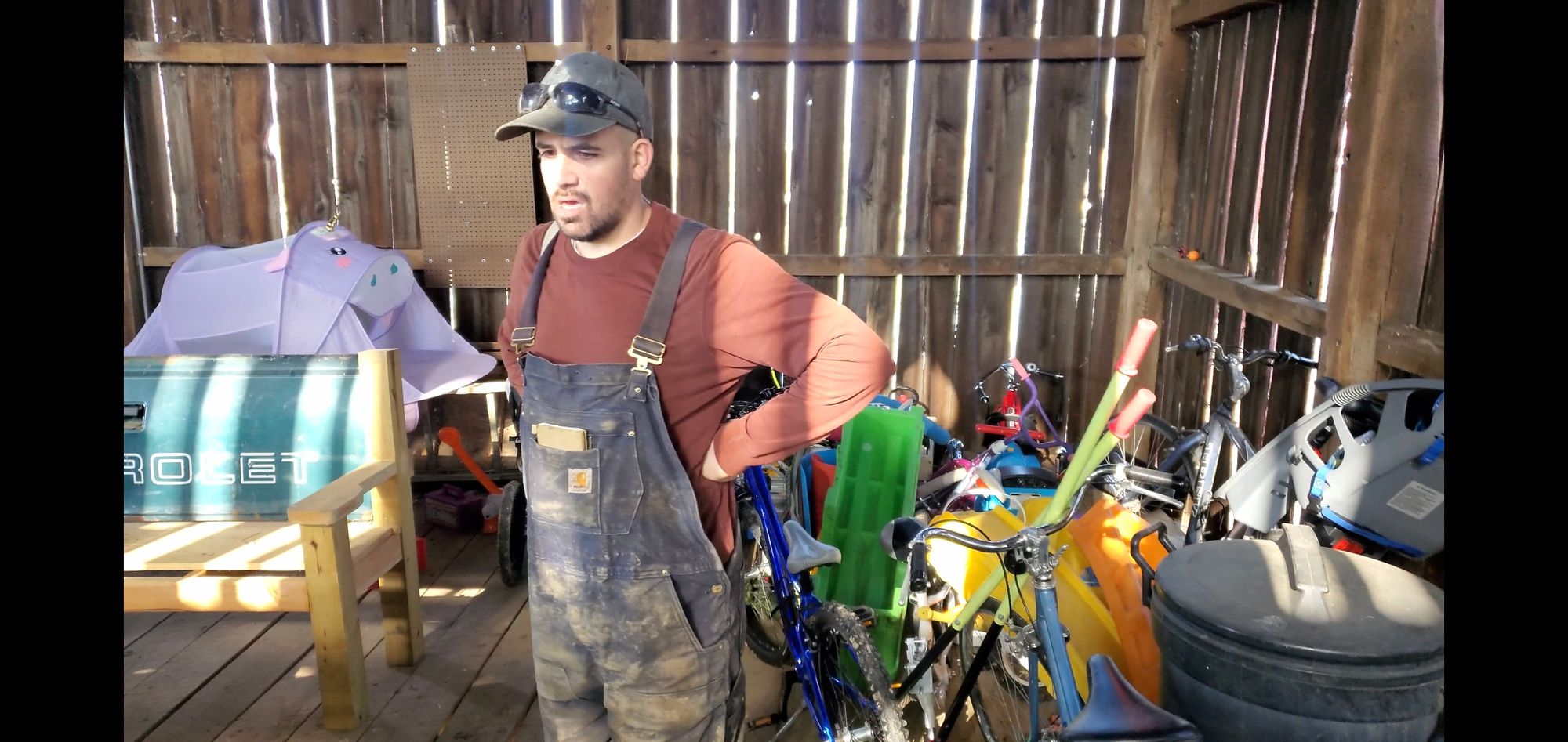Leveraging Spare Capacity

Last week, I discussed how we are applying a combination of the Getting Things Done and Kon Mari methods in order to organize both our mental and physical spaces.
Both of these systems encourage you to start with full collection and to ignore the urge to process as you go.
In other words, collect all of your stuff into a big pile before you start trying to make decisions about whether you want to keep it or where it should be headed.
Each system has its own nuances. Kon Mari has you gather everything you own category by category, forcing you to go through each item and reflect on it.
Getting Things Done has you collect from all categories at one time, but you only collect the things that don't belong where they are or how they are. If something about them needs to be changed, you collect it in the pile.
Both speak to the benefits of doing the collecting and the processing as distinct actions. Both see value in working your way through all of it in one go.
We are doing a combination of both.
That means we spent a good chunk of time last week collecting our belongings into giant piles. All inside stuff has been collected in the play room. All outside stuff has been collected in the barn.
We are about 75% of the way to having collected everything we want to collect, which is pretty much everything except for the things we know we use and love every day.
Just to be clear, I mean that we literally took almost everything we own and put it in one of two places. Our stuff is in giant piles.
We did this in order to get ready for the next step, which is processing. Processing is picking up every item you've collected and deciding if you want to keep it. This decision is primarily made based on whether the item currently brings us joy.
We have found that utility is not a great barometer of whether we should keep something or not. My direct Heagy lineage is famous for holding on to things because they may be useful one day.
This sounds good in theory, but in practice, it leads to many, many, many coffee cans filled with every knick knack that's ever floated in front of our eyes.
Ooh, I could use this one day. I'll just put it in this can over here where I will never, ever in a million years think to look for it.
That's okay though, because these cans serve as our primary inheritance. We all get a good treasure hunt to look forward to.
I've found that discarding these potentially useful things is an important exercise for me. By letting them go, I open up space to store the things I love using in a way that facilitates me actually using them.
Instead of a workshop piled high with stuff, I want a workshop with intentionally placed tools and hardware that are exactly where I want them, when I want to find them.
A place for everything, and everything in it's place.
I am committed to making this philosophy part of how we manage this farm. Based on what I have seen working with businesses and farmers, this is one of the most critical components to success.
There is a reason an organization is called an organization.
While we resisted the urge to begin processing while we were collecting, it was impossible not to notice that there was a lot of stuff that we will not be keeping.
My first thought was that this meant I had a lot of trips to the Good Will in my near future.
Today we came up with a more fun way to discard some of these things.
The inspiration for this idea came from a conversation with Triana.
She needed help with getting her own discard pile to the Good Will because she had already packed her own car to the brim for her move back to Virginia.
I went over to pick up that load and we got into a discussion about the 8 forms of capital and how there are a lot more insights to explore using those concepts.
When we were done, I headed home instead of straight to the Good Will because Chesley had just made homemade bagels.
You might think Chesley greeted a car packed full of junk with frustration - and you would be right. She was frustrated that I did not take the stuff straight to donate.
Until a laundry basket caught her eye.
She's been wanting a new laundry basket.
She then noticed a few other things that had been on her mind as well.
Before I knew it, she was singing a different tune. Her and the kids dug through all the stuff and found quite a bit that they were excited to keep and use.
As I watched this take place, I began reflecting on the saying that one man's trash is another man's treasure. This got me thinking about my own discard pile.
How much stuff am I sitting on and not appreciating that someone else would find great value in?
These thoughts led me back to the 8 forms of capital and a concept called spare capacity.
Spare capacity is when some resource is not being used to its full capacity.
It is good to have some spare capacity. Spare capacity can provide a very important buffer against the natural fluctuations within complex systems.
Spare capacity can also be a huge sink of wealth, and identifying it can unlock large amounts of value that you can gather or redirect.
Spare capacity is a topic that I will write more about in the future. I have found that leveraging spare capacity is an important part of maximizing outcomes, whether that is happiness for an individual or profits for a business.
Right now, I'm specifically looking at how much wealth we leave locked in material capital that no longer brings us joy. I know we are not the only ones guilty of this.
Most people I know have large collections of things that they don't actually use anymore.
The question is, how large are we talking?
What would happen if we went through our belongings and let go of the things that don't bring us joy anymore?
How much wealth is locked up in these belongings?
How much extra energy and space and resources would be made available to dedicate to things that do bring you joy in the present day?
If you took the things that no longer brought you joy and found someone who would find joy in them, how much do you stand to gain?
I have a hunch that the majority of us could likely generate at least 4 figures worth of financial capital if we actually offloaded this stuff.
I think there are some people that could push well into the 5 figures.
The gains would not be entirely financial though. Some gains would be financial. Some financial gains could be shifted right back into other forms of capital like more important tools or exciting experiences.
If you have five grand worth of stuff sitting around, that is like leaving a vacation to Hawaii sitting on your shelf.
Do you already have everything you need for the things you want to do? I don't.
If there are things I am excited to buy and I'm not buying them yet because I don't have the capital, it seems awfully foolish to sit on material capital that I am not using. Why not shift it around?
As my mom and I talked about all this, it quickly escalated into a game. She said she would be more committed than me and would be able to sell more stuff faster. She literally jumped in her car and drove away saying it was a race to $1000.
I'm going to do two things. I'm going to race her to $1000, and I'm also going to document how much I can successfully sell between now and the end of January.
I will report back on how this goes. Hopefully we'll earn something, and I'm sure we will learn something.
If you want to play along or if you have any ideas of a good prize for the first one to hit $1000 in sales, please let me know.
I'm looking forward to this.
I think there is a ton of value to unlock within this process, and I think the unloading of this "stuff" will have a ripple effect across potentially all 8 forms of capital.
We shall see.
Thanks for reading. I also appreciate all the feedback I've been getting. I'm sorry that I haven't responded to all of it. I read it all and it fills me with hope and excitement, so please keep it coming. I will do better about responding.
Life is good.
